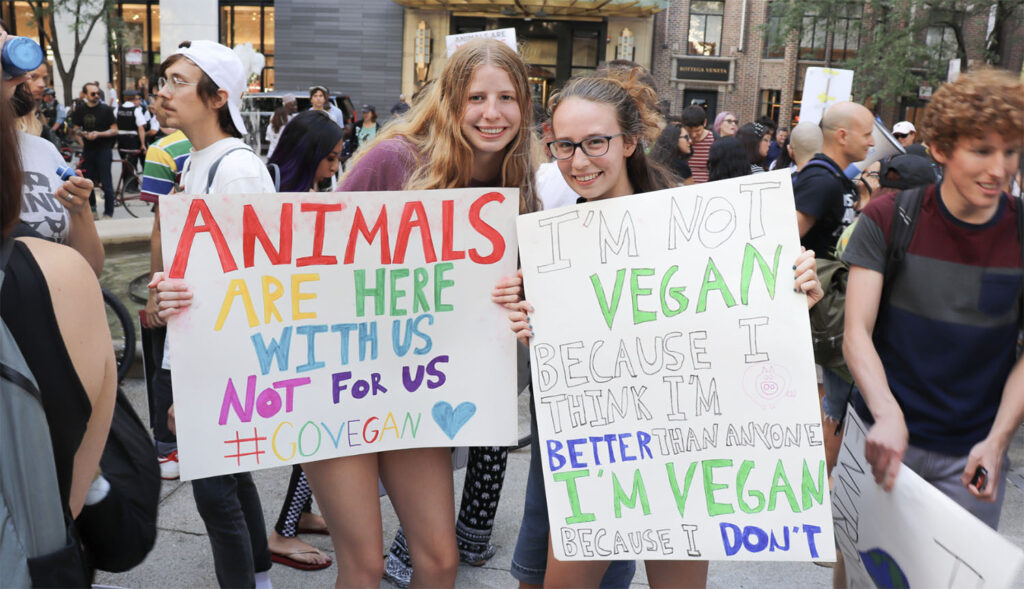By Elise Nam, Alliance Intern from Barnard College ‘24
In March 2020, I decided to go cold-turkey vegan…almost. I became, what my mom liked to call, “seagan.” By January 2021, I no longer felt justified in my consumption and ditched fish after watching Seaspiracy. While I try not to be overbearing, whenever I mention I’m vegan, the first question I usually receive is “Is it hard? How do you get protein? What do you eat?” The diet portion is easy. Yet, little did I know that the beginnings of my veganism would snowball into all aspects of my life, specifically inciting a passion for environmental activism.
Veganism is defined by the Vegan Society as “a philosophy and way of living which seeks to exclude—as far as is possible and practicable—all forms of exploitation of, and cruelty to, animals for food, clothing or any other purpose…In dietary terms it denotes the practice of dispensing with all products derived wholly or partly from animals.” The act of boycotting animal products is not only beneficial to the environment and animals, but should be viewed as a potent form of social activism to resist oppression by our systems and societies.
So why do people go vegan? For me, it began from a health and ethical perspective. The most obvious impact is, of course, the protest of the injustice of animal suffering. As the pandemic deepened, I also learned about the significant environmental and social impact veganism had. Now I am vegan for all the planet, animals, and people.
Animal agriculture is extremely land and water intensive. According to CulinarySchools, “A vegan diet requires 300 gallons of water per day versus a meat-eating diet which requires 4,000 gallons per day,” and “70% of grain and cereals grown in the United States are fed to farmed animals.” In addition, animal agriculture and exploitation is a massive pollutant. “Animals raised for food create 89,000 pounds of excrement per second. This creates a massive amount of groundwater pollution.”
Moreover, research published by Nature Food found that “35% of all global greenhouse gas emissions are attributable to food production, of which 57% corresponds to the production of animal-based food, including livestock feed.” Even the simple act of decreasing the amount of meat, poultry, or dairy consumption can massively reduce greenhouse gas emissions. “If every American dropped one serving of chicken per week from their diet, it would save the same amount of CO2 emissions as taking 500,000 cars off the road.”
In boycotting goods and foods that exploit animals, vegans resist the persistent oppression and mistreatment of animals and our planet. Thus, veganism is inherently a form of social and political activism.
Mara-Daria Cojocaru, a philosopher from Munich School of Philosophy philosopher and Alasdair Cochrane, a University of Sheffield professor of political theory, write in The Conversation that a common misconception and controversy about veganism is the ‘purity’ debate. This debate centers around questions such as “Should vegans eat avocados, the production of which is notorious for its harmful environmental and social impact?” or “Should they buy plant-based burgers from fast-food chains that make their profits from selling animal flesh?”
Instead, Cojocaru and Cochrane state “that veganism should not be framed as a personal lifestyle choice but as a form of political activism. Viewed in these terms, veganism is a collective action aimed at political transformation, not an individual quest for an ethically pure diet.”
While veganism started as a dietary and individual lifestyle choice for me, it has become so much more than that. Veganism is the very reason I am working with the Alliance and practicing sustainable and equitable practices in activism, and in all aspects of my life.

